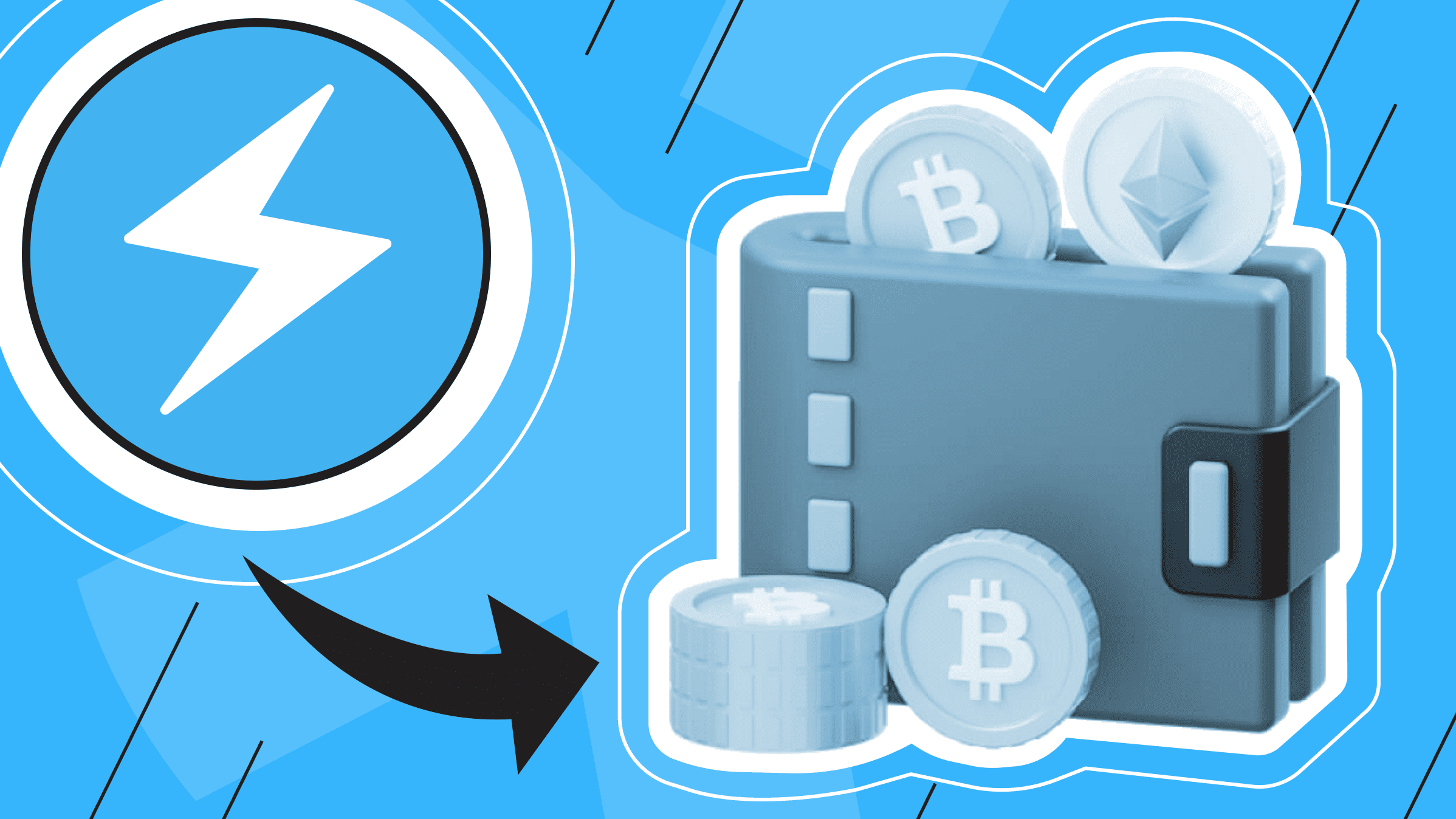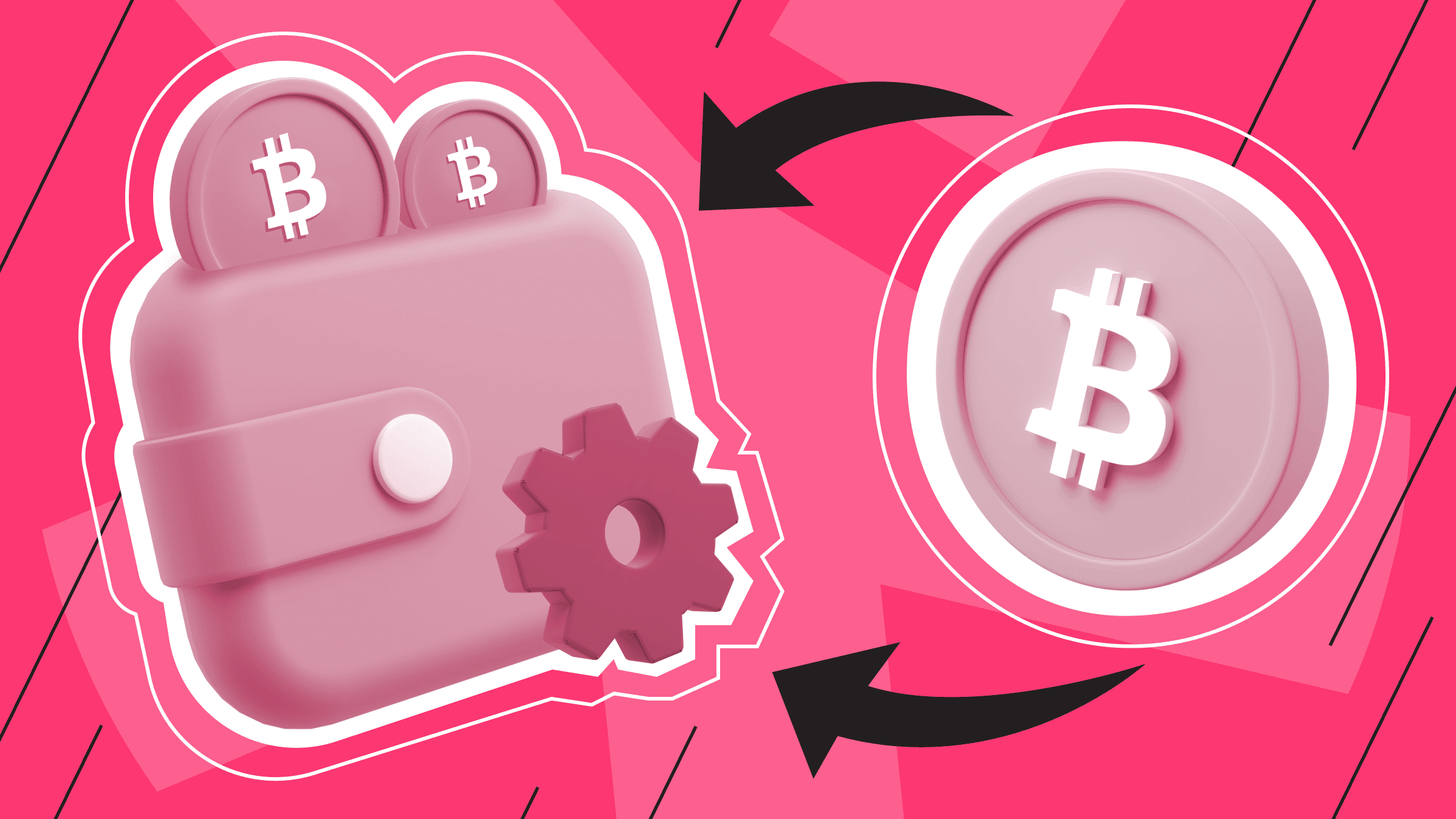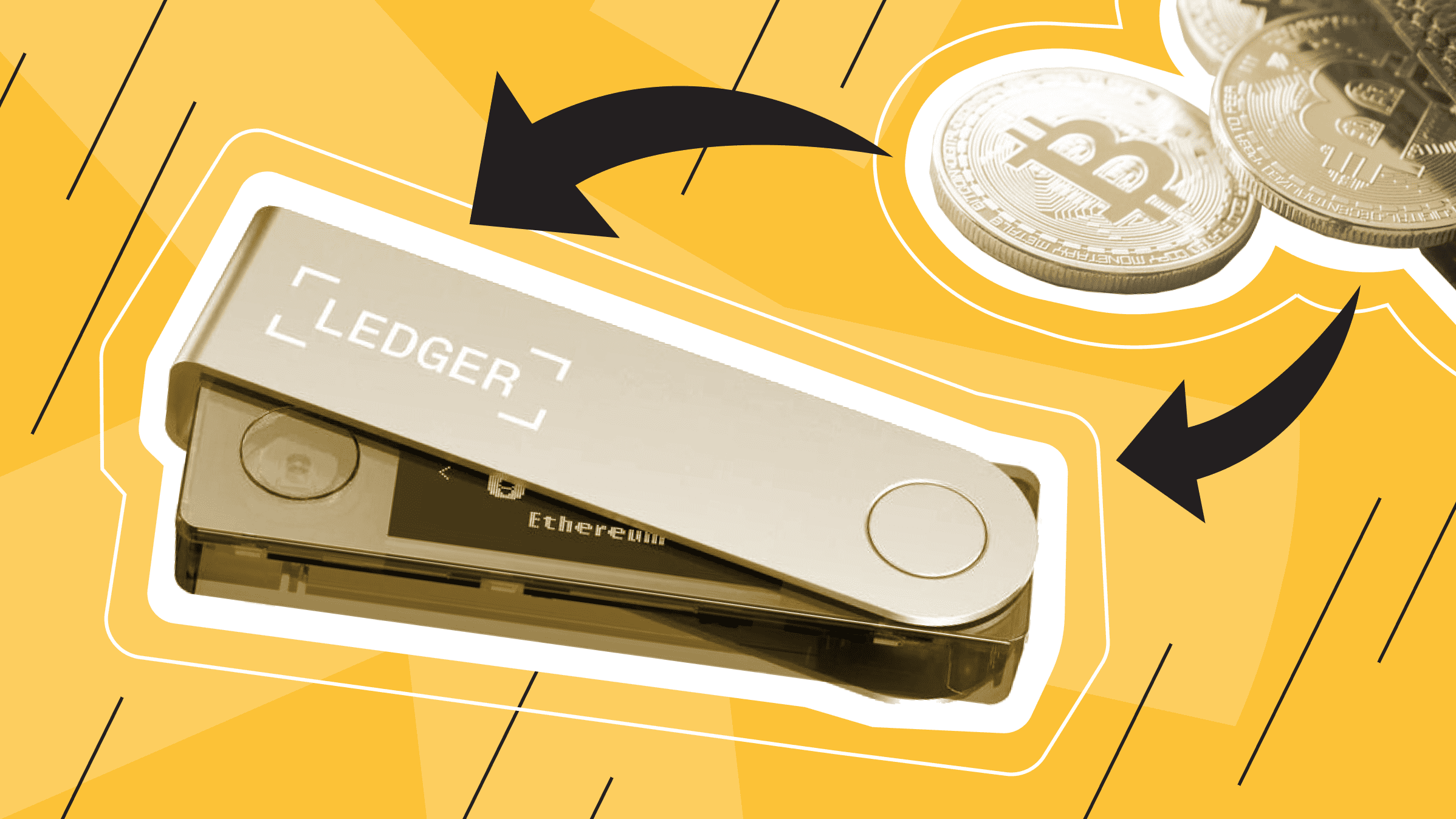
Most major security incidents in 2022 involved hot wallets, while cold wallets with no online exposure remained unscathed. Today, we're going to talk about how to safely store cryptocurrency and why many people still choose hot wallets over the more secure cold storage options.
What is a Cold Cryptocurrency Wallet?
A cold wallet definition or cold storage wallet is a method or device used to store cryptocurrency private keys offline. It is not connected to the internet, which reduces the risk of hacking and unauthorized access.
The main purpose of a cold wallet is to securely store the private keys you need to access and manage your cryptocurrency accounts. Private keys are essentially secret codes that allow you to confirm ownership and control of digital assets. By storing private keys offline, cold wallets help protect them from potential online threats such as hacking attempts and malware attacks.
A cold wallet can be a good choice if you're willing to sacrifice some convenience for added security.
Can Cold Wallets Be Hacked?

Although cold wallets provide increased security, they still require additional security measures. You should still back up your private keys and store them in a safe place. Regular updates and best practices are critical to keeping cold wallets secure.
Technically, cryptocurrency cannot be stolen from a wallet because it is not stored in the wallet but in a blockchain. However, virtually nothing is tamper-proof.
If your device is stolen, attackers can enter a cold wallet if they know your PIN (there are many methods of password mining). Many digital wallets have built-in protection against such attacks, but it's still important to be aware of some of the risks.
Another situation is when your seed phrase is lost. This phrase can be used to generate a new private key and gain access to your assets. In this case, taking care of reliable storage locations is worthwhile.
Why Use a Cold Wallet?
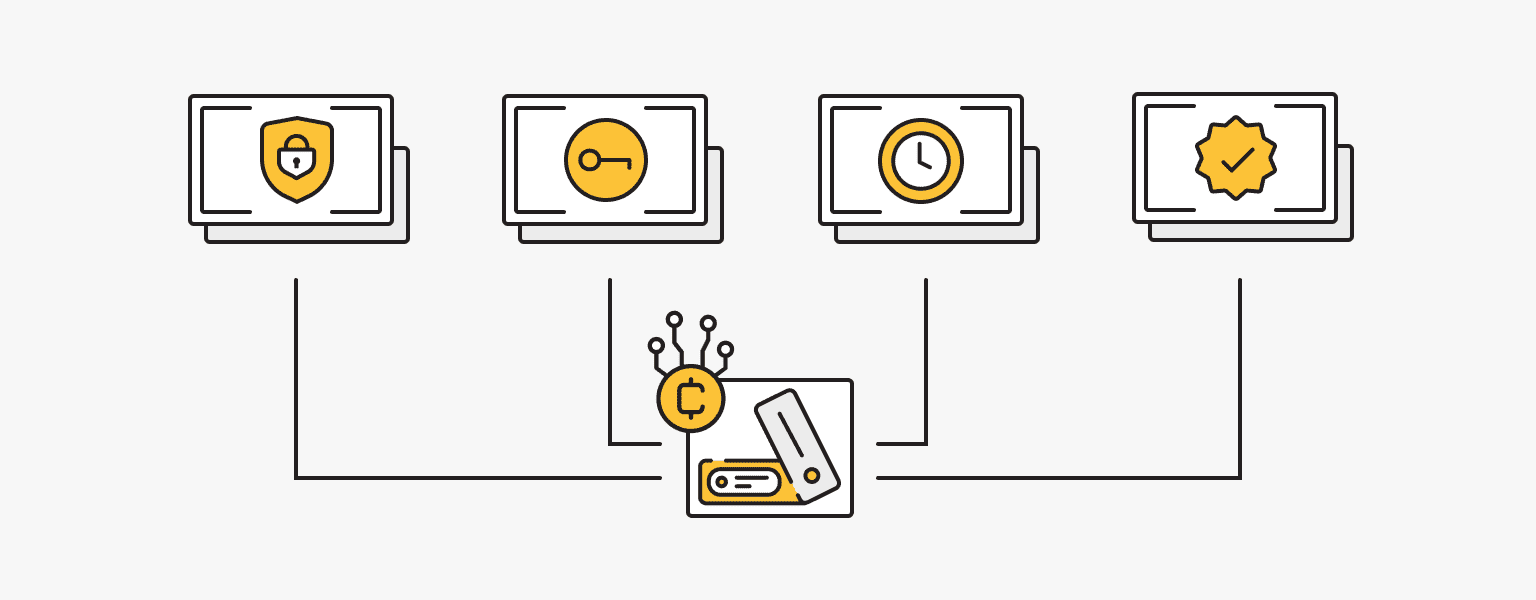
There are several good reasons to use a cold wallet to store cryptocurrency. Their advantages are these:
- Enhanced security
Cold wallets offer a higher level of security than hot wallets that are connected to the internet. Cold wallets protect your funds from hacking attempts, malware attacks, and other forms of online cyber threats. They are immune to remote attacks and vulnerabilities, which also makes them resistant to phishing attacks, ransomware, etc.
- Offline storage
Offline storage of private keys is especially important because private keys are critical to accessing and managing your cryptocurrencies. With a cold wallet, you can store your private keys in a secure environment, reducing the risk of compromise.
- Long-term storage
This type of cryptocurrency wallet is often used for long-term storage that involves infrequent transactions. If your plans include storing digital assets for an extended period of time, a cold wallet is a reliable way to go. It is especially beneficial for investors or individuals who do not actively trade their cryptocurrencies.
- Control
With a cold wallet, you have complete control over your private keys and don't have to rely on a third party (except for the hardware cold wallet). This reduces the risk of potential errors or vulnerabilities associated with using external services.
How Does a Cold Wallet Work?
Each transaction initiated online is temporarily transferred to an offline wallet stored on the device, where it is digitally signed before being transferred to the online network. During the signing process, the private key has no "contact" with the server connected to the network. Therefore, even if hackers were to stumble upon this transaction, they would not be able to access the private key. As a tradeoff for this added security, the process of transferring to and from a cold wallet device is slightly more time-consuming than the process for a hot wallet.
As an example, the following procedure can be used when making a transaction through a hardware cold wallet:
- The owner connects the hardware wallet to a computer with Internet access;
- Then selects the option to receive digital assets;
- The device automatically generates an address for the transaction;
- The sender initiates an asset transfer to the generated address;
- The wallet owner disconnects the wallet from the computer, and the transaction information remains offline.
Cold vs. Hot Wallets: What's the Difference?

Cold and hot cryptocurrency wallets have their advantages, disadvantages, and significant differences in ways to store digital assets.
Hot wallets are connected to the internet and allow you to conveniently access and manage your cryptocurrencies. They are ideal for users who need quick and easy transactions. Cold wallets are often available as mobile wallets (Coinbase Wallet, Trust Wallet), web wallets (MyEtherWallet, MetaMask) or desktop wallets (Exodus, Atomic Wallet), which again increases their accessibility compared to a cold wallet.
If you use a hot wallet tied to a specific exchange, you're assured of the convenience of interacting within your chosen ecosystem. In addition, most hot wallets are free.
Hot wallets are inherently much more vulnerable, and malware, phishing attacks, and hacking attempts can compromise their security. On the downside, some features may be limited due to local laws in certain countries.
Let's go back to cold wallets and compare them to hot wallets in several criteria.
|
Cold Wallets |
Hot Wallets |
|
Prices range from $79 to $255 for hardware wallets |
Available online and most often free of charge |
|
Suitable for long-term storage |
Suitable for regular transactions |
|
Not vulnerable to online attacks. More secure |
High risk of hacking due to internet connection. Less secure |
|
Transfers between cold-storage units are a bit more complicated |
Transactions are quick and easy |
The choice between a cold wallet and a hot wallet depends on your specific needs and circumstances. Many cryptocurrency users use both cold and hot wallets, using cold wallets to securely store most of their funds and hot wallets for day-to-day transactions. This approach strikes a balance between security and convenience.
Types of Cold Wallets
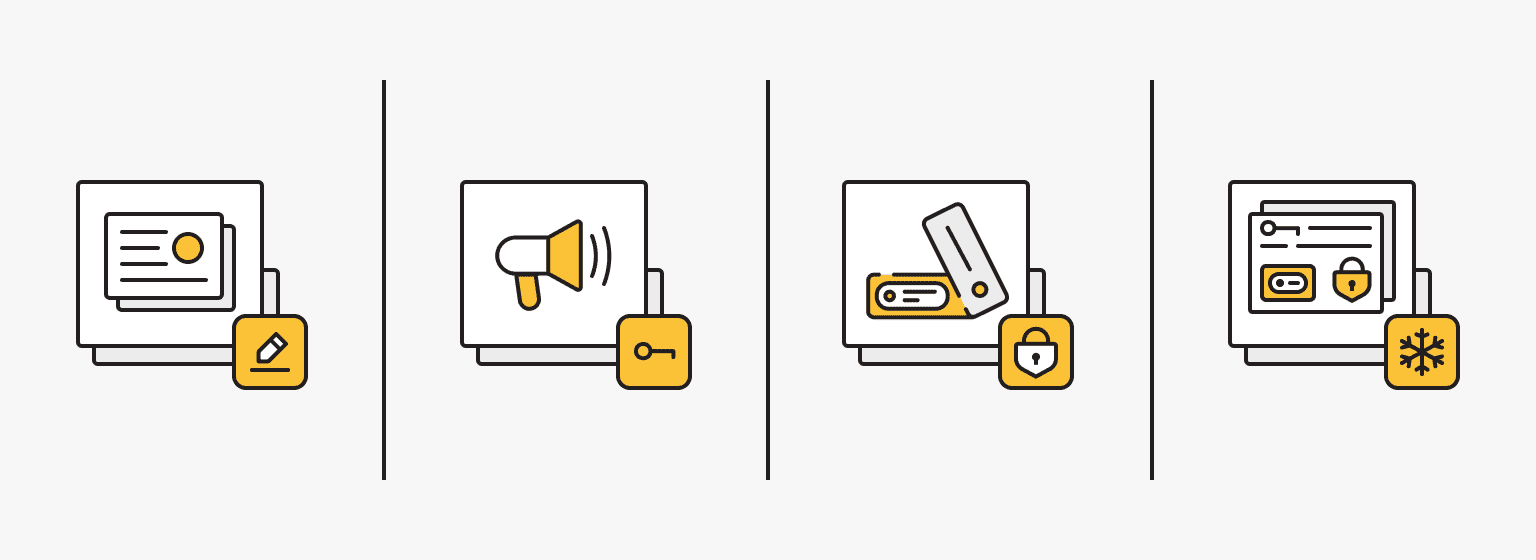
The most common and recognized types of wallets for storing cryptocurrency are hardware wallets. However, we will look at other types of wallets as well.
Paper Wallets
Paper wallets are the simplest form of cold storage, where the private and public keys of the cryptocurrency address are printed or written on paper. This method is considered by some to be quite secure.
In the case of a paper Bitcoin wallet, the cryptocurrency owner can simply print out a document with a QR (Quick Response) code built into it so that it can be easily scanned and the transaction signed.
The disadvantage of this wallet is that if the document is lost, defaced, or destroyed, the owner will permanently lose access to the address where their digital funds are stored. If you choose this method, make sure you have a safe or other secure way to store your paper wallet.
Sound Wallets
A sound wallet is a creative way to provide secure cold storage for cryptocurrencies. The owner of the wallet encrypts and records high-quality audio of their private key or seed phrase using sound files. Typically, you need to install an application or device to decrypt the keys in the future. Meanwhile, cryptocurrency owners can transfer them to linked addresses for cold storage at any time.
Sound wallets are often considered an expensive and time-consuming method of storage. However, the main appeal of this method is that it encourages long-term storage, as users go through a lengthy process to get their private keys back.
Hardware Wallets
Hardware wallets are physical devices. They provide an additional level of security by isolating keys from Internet-connected devices. Such wallets (e.g. Ledger USB Wallet) use a secure smart card to generate and store cryptographic keys offline.
Hardware wallets often have built-in encryption and additional security features such as PINs, backup and recovery capabilities, and support for multiple cryptocurrencies.
If you lose a hardware wallet, a seed phrase allows you to get your funds back by linking you directly to blockchain addresses independent of your device.
Deep Cold Storage
Deep Cold Storage refers to an advanced offline storage method that incorporates additional layers of security measures. It typically uses various forms of physical, technological, and procedural security measures to protect private keys and cryptocurrency assets.
This storage method is often used by investors or individuals who store large amounts of cryptocurrency over long periods of time.
Without the need for regular access to the wallet, the owner can store, for example, a private key and a seed phrase, prioritizing security over access. A simple example of deep cold storage would be a memory card that holds all of the cryptocurrency owner's private keys in incredibly secure storage.
Best Hardware Wallets
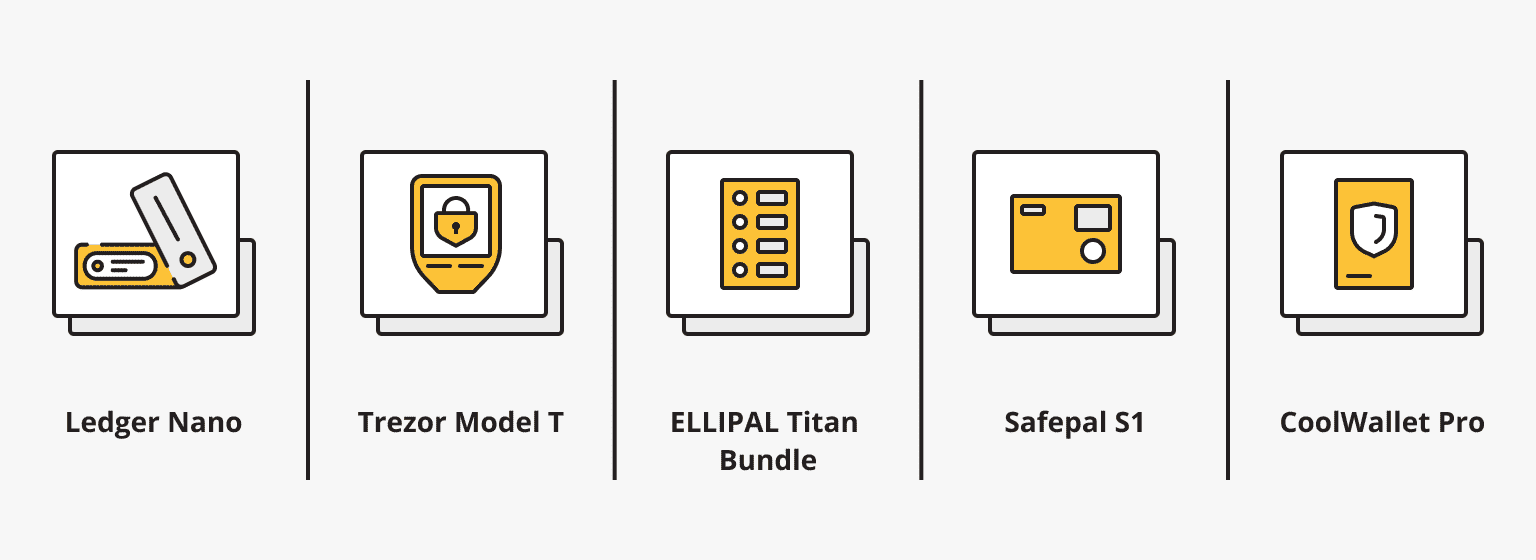
There are several trusted hardware wallets on the market, each offering different features. Here are some of the best hardware wallets that are widely recognized for their security, functionality, and community support:
Ledger Nano
The Ledger Nano series, with the S and X (second generation) models, is a popular hardware wallet due to its advanced functionality. With the Ledger Nano X, you can manage, exchange and buy your cryptocurrencies at any time. Ledger also supports more than 1,800 digital coins and tokens, so you don't have to limit yourself. Ledger Live software supports coin stacking, where you can earn rewards based on your balance. This cryptocurrency wallet provides access to essential smart services - DeFi apps, NFT, and more. The disadvantage of the Ledger Nano X is that it can only store a maximum of three apps. The cost is around $150.
Trezor Model T
The Trezor Model T features a touchscreen display, supports more than 1,800 cryptocurrencies, and offers advanced security features such as passphrase support and network-isolated two-factor authentication. At the same time, third-party exchanges such as Changelly and CoinSwitch are instantly accessible through Trezor's online interface. The downside of the Trezor Model T is that the screen is considered too small to work with, and the level of security is not ideal. The cost is approximately $205.
ELLIPAL Titan Bundle
The ELLIPAL Titan Bundle provides complete network isolation. It is designed without any network components or ports to support cryptocurrency applications. The ELLIPAL Titan Bundle is also dust and water-resistant hardware. It provides full protection against remote and online attacks, automatically deletes data when a breach is detected, and is capable of fast backups. The ELLIPAL Titan Bundle supports over 10,000 tokens and allows you to work with 51 blockchain networks. A mini version is also available. Disadvantages: cumbersome and slow customer support. The cost is about $160.
Safepal S1
The Safepal S1 is perfect for beginners. The wallet supports 19 blockchains and 10,000+ cryptocurrency tokens, including NFT. Recovery, two-factor authentication (2FA), and pin codes are available, increasing security. With Safepal S1, you also get an independent EAL 5+ secure element, multiple levels of security sensors, and 24/7 community support. The disadvantage of this wallet is the limited number of supported coins. The cost is about $50.
CoolWallet Pro
The CoolWallet Pro is a DeFi-centric wallet that allows you to connect to your device via an encrypted Bluetooth connection with a range of 10 meters. The wallet works easily with DeFi, Dapp, and NFT. CoolWallet Pro features an EAL6+ Secure Element (SE), AES256 encrypted Bluetooth Low Energy (BLE), and five processors for power management. The drawback is the limited coin selection. The cost is about $150.
TOP 5 Open Source Cold Wallets

Electrum
Electrum is a popular open source Bitcoin wallet that has been around for several years. It offers a feature-rich and lightweight client for desktop and mobile devices. Electrum allows control over private keys and offers advanced features such as support for multiple signatures and cold storage. Electrum's servers are decentralized, transactions are verified using SPVs, and the wallet supports third-party plug-ins such as multisig services and hardware wallet integrations.
MyEtherWallet
MyEtherWallet (MEW) is an open source web wallet designed specifically for storing and managing Ethereum and ERC-20 tokens. MEW provides a simple interface for securely creating and accessing Ethereum wallets. It allows you to manage private keys and interact with the Ethereum blockchain. The MEW wallet offers standalone operation for added security and allows integration with popular hardware wallets.
Alpha Wallet
Alpha Wallet uses advanced security features, including multi-factor authentication and hardware wallet support to protect user funds. The main feature of AlphaWallet is a mobile Ethereum wallet for secure storage and management of digital assets. It supports various cryptocurrencies and tokens, including ETH, ERC-20, ERC-721, ERC-1155 and others. AlphaWallet also allows users to access decentralized applications (DApps) directly from the app.
Bitpay Wallet
Bitpay Wallet supports various cryptocurrencies, including Bitcoin, Bitcoin Cash, Ethereum, and USDC and GUSD coins. Users can buy, sell and store cryptocurrencies with Bitpay Wallet, and some integrations are also available. The app can manage multiple wallets at once, making it easier for some users.
Mycelium Bitcoin Wallet
Mycelium Bitcoin Wallet, a widely used bitcoin wallet, features multiple account types, support for hardware wallets (Trezor, Ledger and KeepKey.), integration with trusted third-party services and its own decentralized exchange called "Mycelium Local Trader". The app also supports the TOR network to hide the user's IP address and location.
Knowing about hot and cold wallets can help you choose one or the other and try combined storage, which allows you to manage multiple accounts more efficiently.
VPS
Choose the suitable configuration and enjoy all the benefits of a virtual private server.
From $4.99/moPersonal VPN
Stay anonymous online with a dedicated IP and don't endanger your personal data.
Get $5.00/mo